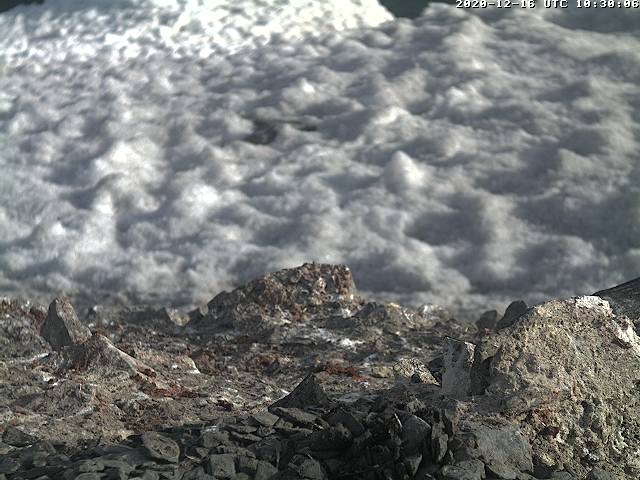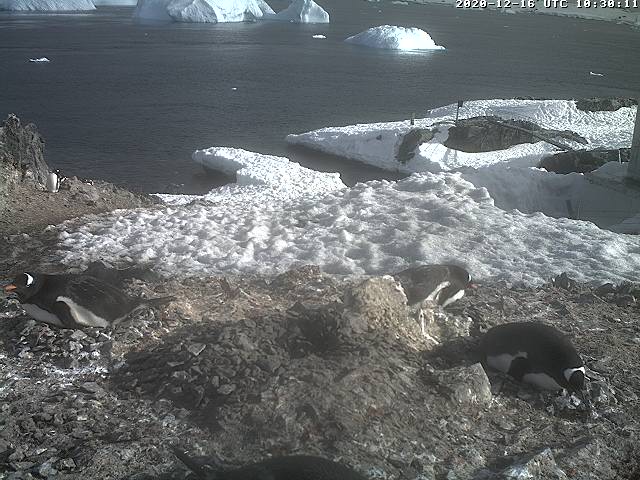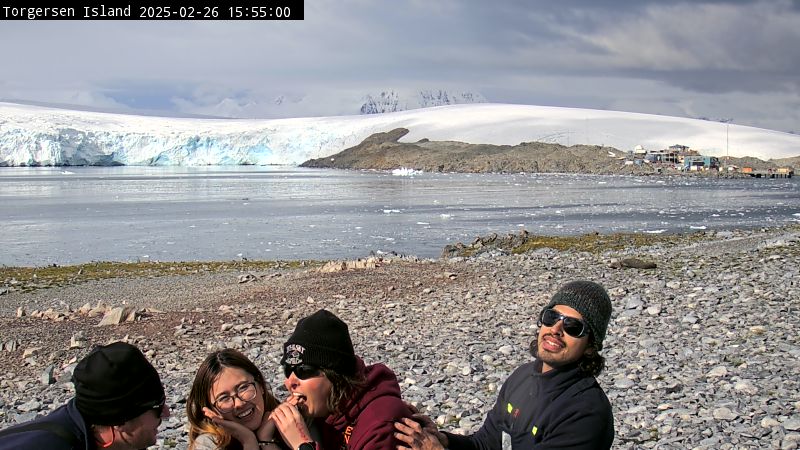Hot off the plane: Dubai's penguins
- Last Updated: July 23. 2010

Oblivious to the desert heat outside, one of the penguins takes a dip in the tank in Dubai Mall.
Photographs by Jeffrey E Biteng / The National
Six Gentoo penguins have flown in to be star attractions at Dubai Mall’s Underwater Zoo. More used to Antarctic temperatures, they have their own snow-making machine and a steady supply of herring to make them feel at home. Tahira Yaqoob sees them settle in.
Their high-pitched singing might have gone unnoticed by the passengers of Emirates flight EK028, but when the plane landed it was clear there were some rather unusual VIPs on board.
Instead of pulling into the gate, the jet taxied directly to the Customs dock, where government officials and a police escort were waiting to greet the new arrivals.
The usually lengthy disembarkation process was speeded up to just 20 minutes as the six visitors had their papers stamped, were placed in a refrigerated truck to keep them cool in the 40°C heat and transported to their new home – Dubai Mall’s underwater zoo.

Feeding time for the Gentoo penguins. They are hand-fed herring and mackerel and the fish have to be presented head first.
But while they might walk on two feet, that is about all the Gentoo penguins had in common with the other passengers on the Glasgow to Dubai flight.
At the zoo, which forms part of Dubai Aquarium, special precautions had to be put in place before their arrival as they cannot stand temperatures above 15C and are used to living in particularly harsh cold climates.
“They are very susceptible to the outside environment so a lot of planning had to go into getting them here,” says Damien Prendergast, the manager of the zoo and aquarium.
“They came on a commercial flight but the timing was crucial because you can only move them at certain times of the year and they cannot be exposed to temperatures which are too high without getting stressed.”
The six sub-Antarctic birds, three male and three female, were packed into two wooden crates covered by chicken wire and loaded into the cargo hold along with passengers’ luggage.
Emirates officials lowered the temperature of the hold from a typical 15C to 7C to make the seven-hour journey more comfortable for the birds.
“The biggest issue once they landed and the doors opened was to get them to a refrigerated area as quickly as possible,” Prendergast says.
The penguins arrived at Dubai International Airport in the early hours of a June morning and were met by officials from the UAE’s Ministry of Environment and Water, which looks after wildlife and ecosystems, as well as officers from Customs and Emirates Airline.
Prior to them being lifted out of the plane, their crates were covered with insulation as air-conditioning was blasted into the hold. They were then given a police escort as they were driven to the zoo.
Less than half an hour later, they moved into their new home, a 28-metre squared glass tank in the indoor zoo. Here the air is maintained at freezing temperatures with a machine producing real snow. There is also a small pool in which the penguins can take a dip in 10C water. Gentoos are the fastest-swimming penguins, reaching speeds of up to 36kph.

Children watch the penguins in their enclosure.
A resin roof with light shining through mimics the effect of sunshine hitting ice, while every morning, the enclosure is hosed down and filled with a 500kg batch of fresh snow.
The one-year-old birds, which are expected to start breeding next year once they are mature, are each hand-fed half a kilo of herring and mackerel three times a day. They are such fussy eaters that if the fish is not presented head first, they refuse to take it.
They were bred in captivity in Edinburgh Zoo in Scotland, which has one of the largest colonies in the world with more than 120 birds and which dispatches them to zoos as far afield as Japan and New Zealand.
The zoo holds a genetic database of all Gentoos held in captivity in Europe and even operates a penguin cam monitoring their movements, as well as a penguin Jacuzzi and bubble-making machine to keep the birds entertained.
“We are not taking the birds from the natural environment. They are bred to live in captivity and could never be released into the wild,” says Prendergast.
“These are animals that the majority of people here have never seen and will never see. We include them in an educational programme on melting ice and global warming for children from pre-school age to secondary school. Hopefully we are helping to teach people about climate change and the importance of protecting their environment.”
The creatures, he says, are playful, friendly and immensely curious. They are also very vocal and sing loudly while searching for a partner.
Mature birds usually lay two eggs in April, which hatch after a 35-day incubation period, during which time the parents take it in turns to watch them. Newborns weigh about 85 grams, but within three months have grown to 5kg. The younger birds chase their parents around the nest to beg for food.
By the time they are two years old, males can weigh up to 8.6kg while females reach a maximum weight of 8.1kg. Gentoos are easily recognisable by the white stripe across their heads and are the third largest species after the Emperor and King penguins.
Next spring, nests will be introduced to the Dubai enclosure to encourage breeding. In the wild, these are made from a circular piles of stones, which are jealously guarded. A male penguin can curry favour with a female by offering her a particularly nice stone. Most mating penguins tend to seek out the same partner year after year.
In places like the Falklands, the penguins live on krill. They are hunted by sea lions, leopard seals and orca whales, while seabirds target the eggs and chicks.
The Gentoos, which have yet to be named, are the second set of penguins to be introduced to the zoo. Last year 15 South American Humboldt penguins were moved in. The Humboldts, which are usually found on the Pacific coast, were among the zoo’s first residents when it opened in November 2008. They have yet to start breeding but to encourage them, their keepers have installed nesting boxes into their enclosure, which is separate from the Gentoos. Prendergast says: “They have settled in very well and love interacting with their keeper and feeders, who have given them all names. We are hopeful they will start soon.”
Source

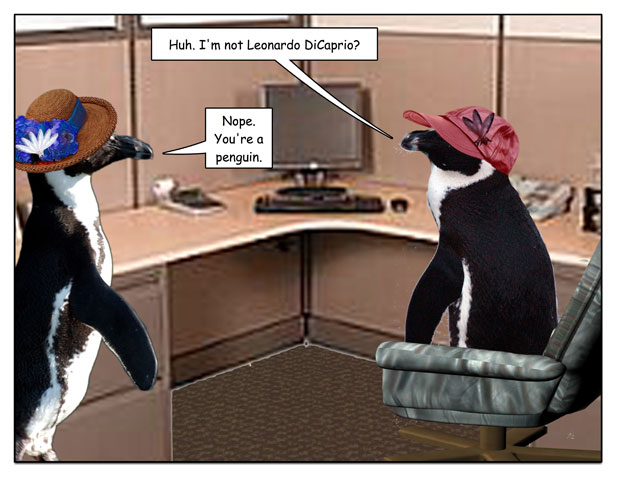
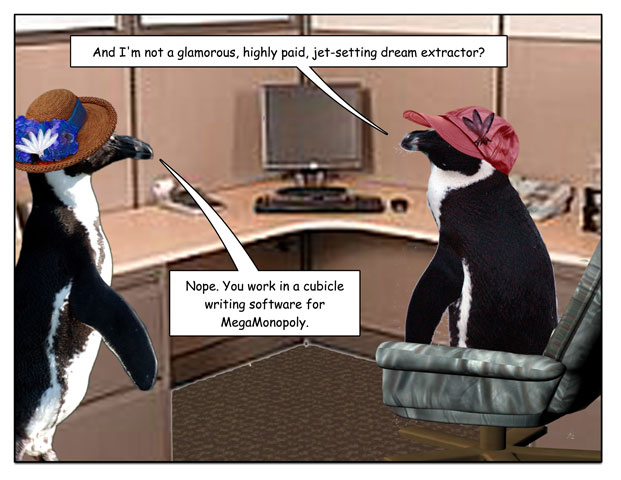



![]()

![]()

![]()

![]()
 Boy oh Boy! Penguin babies sure grow quickly. The picture above is of the tiny, gentoo chick under its mother, Biscuit. That was on July 1st.
Boy oh Boy! Penguin babies sure grow quickly. The picture above is of the tiny, gentoo chick under its mother, Biscuit. That was on July 1st.

![]()

![]()


![]()

![]()

![]()

![]()

![]()
.jpg)




